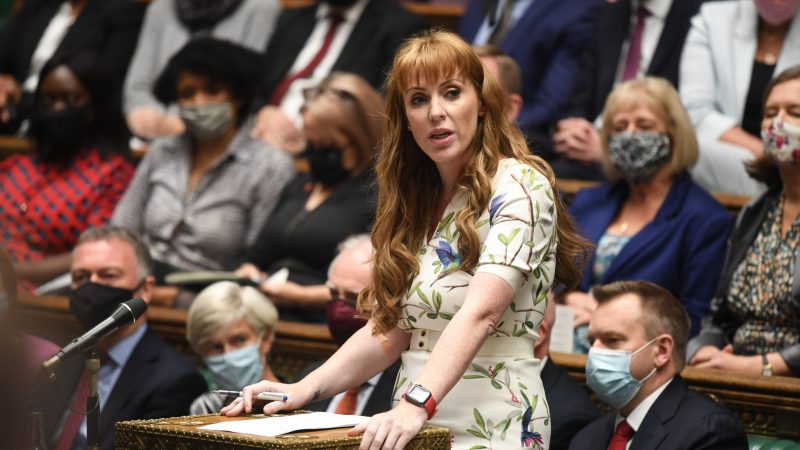
Angela Rayner has denounced government anti-strike proposals as “unworkable and unserious” after the government confirmed plans to enforce minimum service levels in the public sector during industrial action.
The government announced this afternoon that it is introducing new laws intended to “maintain a basic function and deliver minimum safety levels” for fire, ambulance and rail services during strikes. The legislation is expected to be presented to the Commons “in the coming weeks”.
Commenting on the announcement, the deputy Labour leader said: “These proposals are unworkable and unserious from a dead-end government. It’s insulting to key workers that Rishi Sunak thinks that threatening teachers and nurses with the sack will end strikes.
“At every stage, the government has sought to collapse talks and throw in last-minute spanners. Now the Prime Minister is wasting time on shoddy hurdles that even his own Transport Secretary admits won’t work.
“Labour is united against this attack on fundamental British freedoms. We will oppose this bill and repeal these restrictions on the right to strike.”
The Department for Business, Energy and Industrial Strategy said in a statement that trade unions will be “bound to follow” the new legislation and “will risk the employer bringing an injunction to prevent the strike from taking place or seeking damages afterwards if they do not comply with their obligations”.
The TUC general secretary Paul Nowak said: “This is an attack on the right to strike. It’s an attack on working people. And it’s an attack on one of our long-standing British liberties.
“It means that when workers democratically vote to strike, they can be forced to work and sacked if they don’t. That’s wrong, unworkable and almost certainly illegal. The announcement offers nothing more to help with this year’s pay and the cost-of-living crisis.”
It had been reported that other sectors would also be covered by the legislation, including health and education. But the government said it “expects to continue to reach voluntary agreements” with those unions and “would only look to consult on minimum safety levels should these voluntary positions not be agreed”.
Responding to earlier reports about the government’s plans, Unite general secretary Sharon Graham said: “Yet again, Rishi Sunak abdicates his responsibility as a leader. Instead of silly posturing and game playing, he should step up to the plate, act as a leader and start negotiating to resolve the crises his government has created.”
“Whatever the latest scheme the government comes up with to attack us, unions will continue to defend workers,” the union leader added.
Fire Brigades Union (FBU) general secretary Matt Wrack said: “The Tories are clearly hellbent on criminalising and victimising trade unions with this threatened onslaught on the right to strike.”
Wrack noted that Britain “already has among the most restrictive anti-trade union laws in the western world”, adding: “To allow exploitative and vindictive bosses to pursue trade unionists in the courts would be a highly authoritarian move, and more in keeping with the actions of a dictatorial regime.”
The FBU is currently balloting nearly 33,500 members on industrial action after the union’s demands for an increased pay offer were rejected by employers, with voting closing on January 30th.
The Royal College of Nursing (RCN) announced last month that its members will go on strike on January 18th and 19th unless negotiations with the government are opened. The potential walk-outs follow two days of industrial action in December.
Ambulance staff across most of England and Wales took part in one day of strike action in December in a coordinated walk-out by the three main ambulance unions, UNISON, GMB and Unite.
Teaching unions NASUWT and the NEU are currently balloting their members on strike action, with voting closing on January 9th and 13th respectively.




More from LabourList
‘The cost of living crisis is still Britain’s defining political challenge’
‘Nurses are finally getting the recognition they deserve’
Letters to the Editor – week ending 15th February 2026